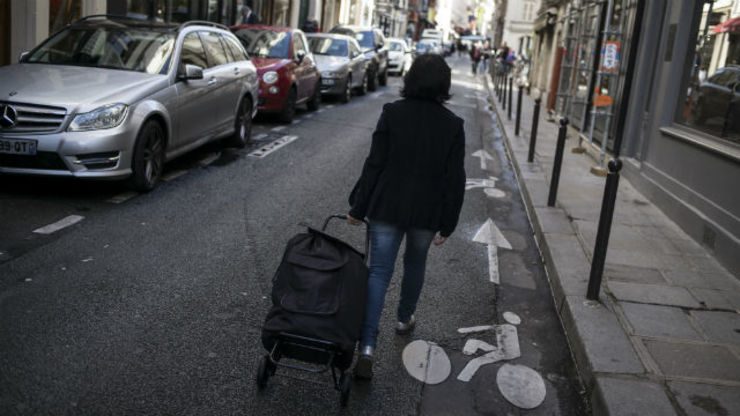SUMMARY
This is AI generated summarization, which may have errors. For context, always refer to the full article.
 We plopped down in the café chair, each sipping our choice of hot brew. Me, a hot chocolate with a cupcake (muffin, I was told it was called) and her, a café Americano, with a cinnamon roll. It was a cold December evening and we were savoring the warmth that our hot drinks and the stories about our children brought.
We plopped down in the café chair, each sipping our choice of hot brew. Me, a hot chocolate with a cupcake (muffin, I was told it was called) and her, a café Americano, with a cinnamon roll. It was a cold December evening and we were savoring the warmth that our hot drinks and the stories about our children brought.
“He has a crush now,” Mila giggled, telling me about her 8-year-old son, Jake. “He asked me to buy him a hamster for a pet. Yun pala, he gave it to this girl, Bea, who is his crush.”
We both laughed at the innocence and earnestness of Jake’s gesture and joked that flowers are now passé in this era of puppy love and school crushes.
We had both just finished work and were eager to catch up on what had happened since we last saw each other in May. I had finished interviewing respondents and Mila had ended her day of juggling housekeeping, babysitting and the occasional dog sitting jobs. “Well, this is Paris, you know,” was her reply to the quizzical eyebrow I raised when she mentioned dog sitting.
“Jake is growing up so fast and becoming more affectionate now, “ Mila shared. “He’s very attached to his father, insisting that they go to sleep at the same time and kissing him good morning when they wake up.”
It is a loving ritual that she watches on Skype on the laptop that is on almost all day. It is a scene that she can only watch but not be part of. “They were just about to go to bed when I left the apartment so I turned on Spotify so they could have some sounds while sleeping.”
It was a rare occasion when I restrained myself from speaking about my daughter. It did not seem… right. Not when I would be with her again when I got back home from this assignment and Mila would still not know when she would get to be with her husband and son again.
It will be the fourth Christmas that Mila will be spending away from them. And she wondered out loud if she could last another year, another Christmas without them.
A past life
It was in May when I first met Mila in Paris. I was the stranger, this journalist who met her husband, Nilo and their son, Jake, when someone told me to check out the Parisian Village in Cavite–a street lined with houses that were built from the Euros that were sent back every month by migrant workers in Paris.
I introduced myself to Mila on Viber telling her I was going to be in Paris to do some stories about migrant mothers and she readily agreed to meet me.
When we met, she welcomed me into the small service room she shared with her best friend, Vangie, another Filipina and resident of the Parisian Village. “You know, it was Vangie who introduced me to Nilo,” she whispered, a twinkle in her eye.
It’s the twinkle that appears whenever Mila talks about the life she left behind in the Philippines working as a school teacher. A life so different and so distant from the one she has now working as an undocumented migrant taking on domestic jobs.
“I used to carry lesson plans, now, I carry a bucket with cleaning products.”

Rationalization of working mothers
Mila rationalized their decision for her to go abroad with numbers, with practicality.
“The money I used to make in the Philippines in a month, I can make in a day here,” she said calculating her day’s wages if she worked 10 hours straight for Euro15 an hour.
Mila and Nilo just wanted to save up enough money for Jake to go to university. They were already sending him to a private school and going to college would secure his future. They were almost close to that goal and Mila had entertained thoughts of going home next year.
“But we had to repair our termite-infested house. Now we’re back to zero.”
I shifted the conversation to ask her about her plans for the holidays; if she was going to see her father-in-law and his wife and kids who live in the outskirts of Paris.
She answered with a shrug. Her days were mostly work and home. She had no interest in going out or meeting friends. “I’d rather just go home and go online with my Nilo and my Jake.”
We had to cut our evening short then. It was getting late and I had to catch an early flight back to Manila.
“I hope you were able to see more of Paris this time, Ana. I wish I could show you around, but I still don’t know Paris very well,” she sighed, bidding me good-bye. “I still don’t feel this city. This is just a place for me to work.”
She saw me off at the metro station and hugged me tightly. I thought of how she teared up last spring when I brought her pictures of Nilo and Jake. I was no stranger then and I was no stranger now. I was still the person who had last seen her husband and her son.
The next morning at the airport, I anxiously waited for my boarding call. I couldn’t wait to see my baby girl again. It had been weeks since I was away. My thoughts drifted back to Mila and the thousands of mothers like her whose only chance at a better life for their family is to leave them behind and my excitement was doused with a tinge of sadness.
Mila and I are both mothers. We are both raising one child. We are both working hard to secure an education for our children knowing that that is the one thing that would ensure them a life that will be better than the one that we had.
Only our circumstances set us apart.
I boarded my plane with a heavy heart knowing that I was the mother who could go home to be with my child after work while Mila could not. – Rappler.com
**Names have been changed to protect the identity of the respondents.
Ana P. Santos is a regular Rappler contributor apart from her DASH of SAS column. She is also the Pulitzer Center’s Persephone Miel 2014 fellow. Under the Miel Fellowship, Ana travelled to Dubai and Paris to do a series of stories about migrant mothers called, “Who Takes Care of Nanny’s Children?”
Add a comment
How does this make you feel?
There are no comments yet. Add your comment to start the conversation.